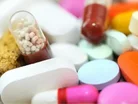Ways to combat the Prescription Drug epidemic

Written by Angie Mansfield
Out of around 250 felony arrests for prescription drug misuse made every year by the Cincinnati Police Department's Drug Diversion Unit, almost 20% involved doctors, nurses, and other healthcare workers. And Cincinnati's not alone.
Prescription drug abuse is the fastest-growing drug problem in the United States, according to the Office of National Drug Control Policy. Any hospital can be affected by prescription drug theft or fraud by workers who may either abuse the drugs themselves or sell them to make a profit.
How can hospitals reduce or eliminate their risk of prescription drug theft?
The Minnesota Hospital Association, in partnership with the Minnesota Department of Health, provides some guidelines.
They include:
Developing a Drug Diversion Prevention Program
By creating a formal program and team to define how the hospital will monitor and handle potential drug thefts, the facility can act faster in case of a problem.
This program should have guidelines in place for prevention, detection, and investigation of pharmaceutical theft.
Conducting Regular Reviews and Audits
Creating controlled substance surveillance reports, high-user reports, and other crucial information on at least a monthly basis can help deter and identify staff who may steal prescriptions.
This program should be a part of the prevention program.
If a theft is suspected, there should be a clear policy on activating the hospital's response team, including pharmacy, HR, and security staff.
Creating a Comprehensive Training Program
In order to effectively prevent drug theft, hospitals need to fully educate their staff on the scope of the problem and signs to look out for. This training should be a regular part of new hire orientation, and ongoing education should be provided for long-term employees.
At the same time, all hospital staff should be encouraged to speak up as soon as they're aware of a possible drug diversion in their facility.
Providing Proper Storage and Security
All controlled substances should be kept in a locked location and never left unattended.
Access to drug storage areas should be limited to authorized staff only and granted only with an electronic lock or key. Camera surveillance should also be used in high-risk areas.
Drug storage access should be one of the first things removed from terminated employees, and all keys should be signed out to specific employees and tracked accordingly.
Security of controlled substances should also include prescription pads and paper that can be used to write fraudulent prescriptions. Only authorized personnel should be allowed to order prescription pads from the vendor.
These are just a few of the control methods hospitals can use to reduce or eliminate their risk of prescription drug theft.
Hospitals need to reduce the number of people allowed access to drug storage areas, and fully educate staff on signs of drug diversion. This way, they can ensure that their prescription drugs stay where they belong.
About the Author
Freelance blogger Angie Mansfield covers a variety of subjects for small business owners. From business growth to marketing to custom mats, her work will give you tips to keep your business running smoothly.



